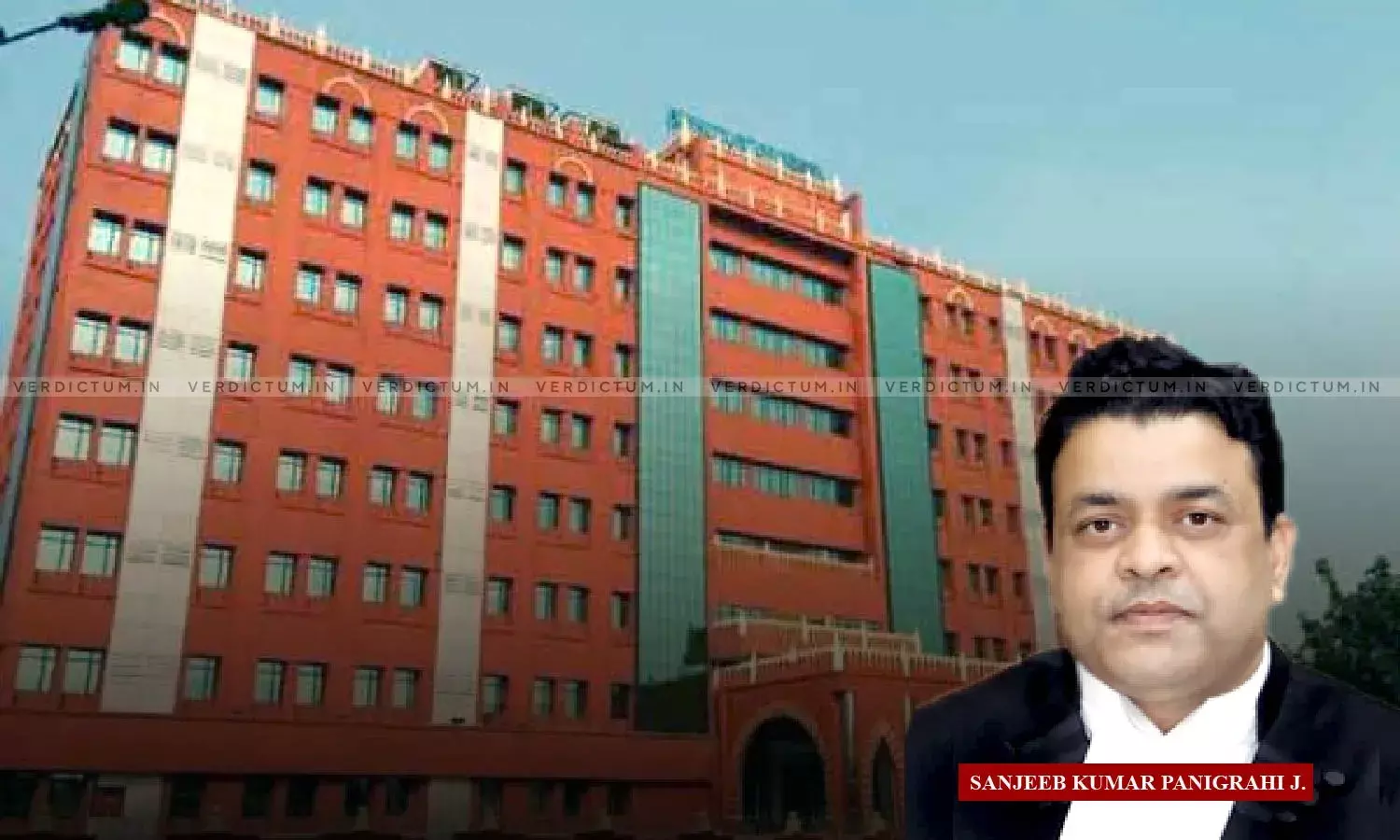Voter ID, Aadhaar, Ration Card Don’t Translate Into Authorised Possession: Orissa High Court Upholds Eviction Notice Against Encroachers Of Jagannath Temple Land
The Petitioners had approached the Orissa High Court, assailing the eviction notice whereby they were directed to vacate the disputed land.

The Orissa High Court has upheld the eviction notice issued against the unauthorised occupants of the Jagannath Temple land and held that identity documents such as Voter ID, Aadhaar Card, Ration Card and electricity bills, at best, reflect residence but do not translate into legal title or authorised possession.
The Petitioner had approached the High Court assailing the Eviction Notice issued under Section 6(1) of the Orissa Prevention of Land Encroachment Act, 1972, by the Additional Tahasildar, Cuttack Sadar, whereby they were directed to vacate the disputed land. The Petitioners also challenged the letter issued by the Chief Administrator (Revenue), Shree Jagannath Temple Administration, Puri, whereby their request for settlement of the land under the Shree Jagannath Mahaprabhu Bije Purinka Zamee Bikri Sambandhiya Samana Niti (Uniform Policy) was rejected.
The Single Bench of Justice Sanjeeb K. Panigrahi held, “The plea of the Petitioners that possession of more than fifty years, coupled with identity documents such as Voter ID, Aadhaar Card, Ration Card and electricity bills, confers a right to settlement, is misconceived. Such documents may at best reflect residence but do not translate into legal title or authorised possession.”
“The contention of the Petitioners that the rejection of their representations is arbitrary also stands rejected. The Chief Administrator, Shree Jagannath Temple Administration, Puri, has correctly held that the Petitioners are unauthorised occupants and that the Uniform Policy is inapplicable to their case. Once the statutory authority has recorded reasons, and the decision is in consonance with the governing Act and judicial pronouncements, no interference is warranted by this Court in exercise of writ jurisdiction”, it added.
Advocate Binod Kumar Mishra represented the Petitioner, while Advocate Subrat Satapathy represented the Respondent.
Factual Background
It was claimed that the Petitioners, who are labourers, have been residing with their families for more than 50 years on the land which forms part of the Amrutamanohi property of Lord Jagannath. The Petitioners continued to reside on the said land without interference until an Eviction Notice was issued by the Additional Tahasildar alleging that they were encroachers upon Government land. The Petitioners filed individual Representation-cum Proposals before the Chief Administrator, Shree Jagannath Temple Administration, Puri, expressing their willingness to purchase the land at such cost in accordance with the revised Uniform Policy.
The office of the Chief Administrator (Revenue), recorded that the land stood in the name of Shree Jagannath Mahaprabhu Bije, Puri, represented through the Shree Jagannath Temple Administration. The Tahasildar was requested to take steps for the release of the occupied land. It was in such circumstances that the Petitioner approached the High Court.
Reasoning
The Bench took note of the fact that the land in question stood recorded in the name of Shree Jagannath Mahaprabhu Bije, Puri, with Amrutamanohi status. The Bench explained that in terms of Section 16-A of the Shree Jagannath Temple Act, 1955, the provisions of the Orissa Prevention of Land Encroachment Act, 1972, apply to unauthorised occupation of lands belonging to the deity as if it were property of the government. Thus, the Bench held that the Additional Tahasildar was fully competent to initiate eviction proceedings under Section 6(1) of the Orissa Prevention of Land Encroachment Act, 1972.
With respect to the Uniform Policy of 2002–03, the Bench asserted that the Petitioners had not established that they fulfilled the conditions therein. “The very object of the Policy is to provide a framework for regularisation of long-standing lawful or otherwise permissible occupation upon compliance with prescribed formalities. It cannot be construed as an instrument for encroachers to seek conferment of ownership. More importantly, Amrutamanohi lands, being attached to the deity and impressed with a public purpose, cannot be alienated contrary to law”, it said.
As per the Bench, the allegations of mala fide, collusion with interveners, or social prejudice remained unsubstantiated. “Mere averments without cogent material cannot displace the presumption of bona fides attached to statutory orders”, it added.
The Court further took note of the fact that the eviction proceedings were initiated pursuant to its directions, wherein it had directed the authorities to take steps for the removal of unauthorised occupation from Amrutamanohi lands. “The action now impugned is thus in furtherance of judicial directions and statutory mandate”, the Bench stated while also holding, “The land in dispute is an Amrutamanohi property of Lord Jagannath, recorded in the name of the deity, and the Petitioners are unauthorised occupants thereon.” Upholding the eviction notice, the Bench dismissed the Petition.
Cause Title: Bishnu Charan Sahoo v. State of Odisha (Case No.: W.P.(C) No.15095 of 2024)
Appearance
Petitioner: Advocate Binod Kumar Mishra
Respondent: Advocates Subrat Satapathy, K. K. Bhuyan

